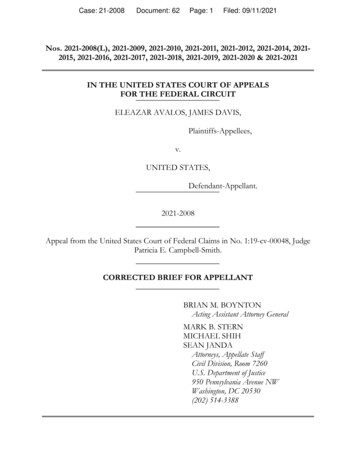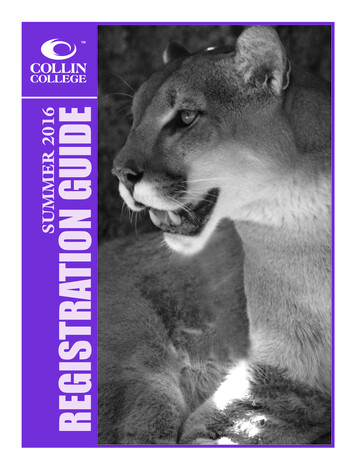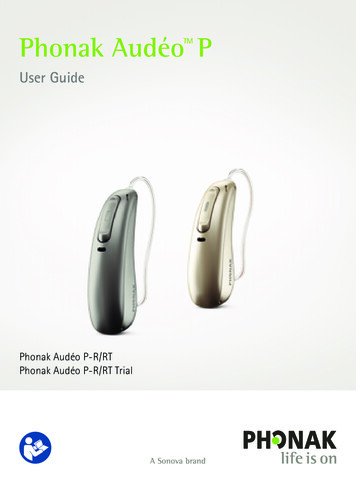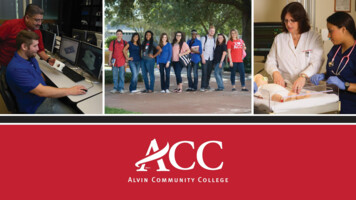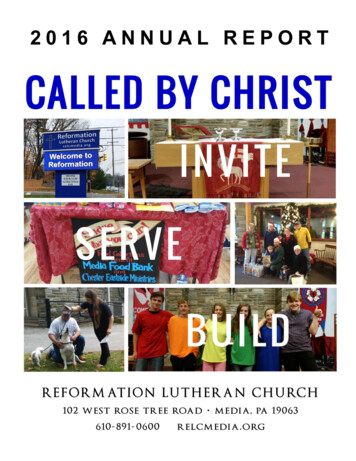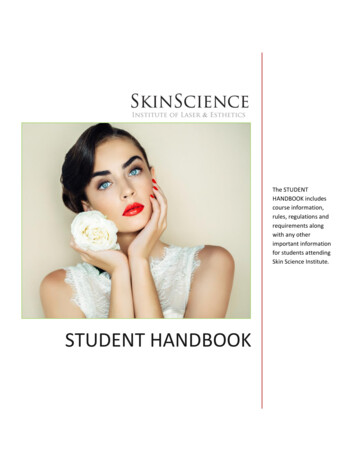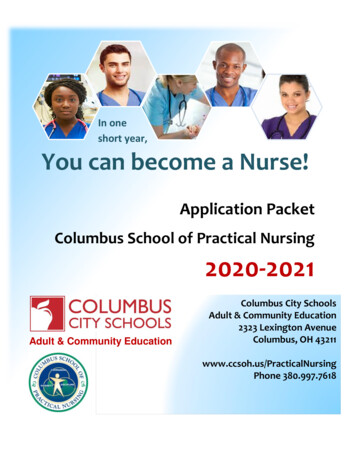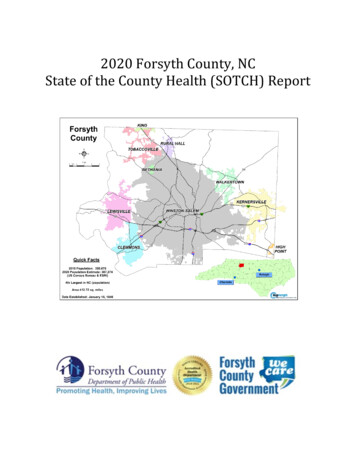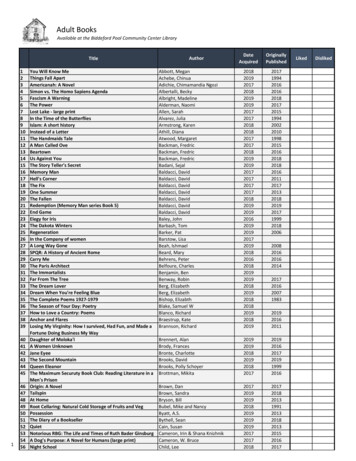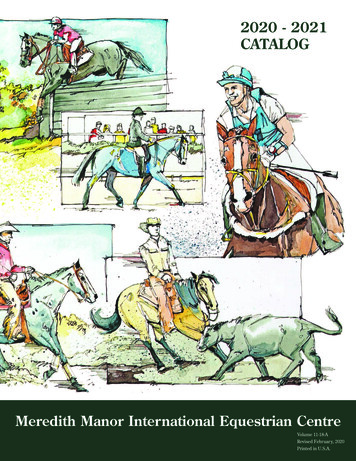
Transcription
2020201720182016 - MeredithManorInternationalInternational 015PrintedU.S.A.PrintedinininU.S.A.PrintedU.S.A.
MEREDilll MANOR IN1ERNATIONAL EQUESTRIAN CENIREMEREDilll MANOR IN1ERNATIONAL EQUESTRIAN CENIRE147 Saddle lane, Waverly, West Virginia26184147 Saddle lane, Waverly, West Virginia 26184Telephone: 800-679-2603 / 304-679-3128Telephone: 800-679-2603 / 304-679-3128ADMINISTRATIVE Office hours: 8:30 A.M. to 5:00 P.M.ADMINISTRATIVE Office hours: 8:30 A.M. to 5:00 P.M.Web Address: www.meredithmanor.eduWeb Address: www.meredithmanor.edu !H8il§IACCR!fflllNG (IIJj(j[ 1(11 CO!IIINllNGIOUCAIIDN & TRAININGACCR!fflllNG (IIJj(j[ 1(11 CO!IIINllNGIOUCAIIDN & TRAININGThe provisions of this publication are not to be regarded as an irrevocableTheprovisionsof thethisstudentpublicationnot to Manorbe regardedas an irrevocablecontractbetweenand ntre. The School, through appropriate action, reserves the rightto change vestherightto change anyprovision or requirement at any time within the student's term of residence.provision or requirement at any time within the student's term of residence.In compliance with federal and state regulations, the following statementsIn compliancefederaland stateunderregulations,followingaremade: Thiswithschoolis authorizedFederalthelawto thorizedunderFederallawto enrollwithnonimmigrantalien students on an "M" visa. Meredith Manor, in of Title IX of the Education Amendment of 1972, does not discriminateon iscriminateon the inbasis of sex, race, color, creed, religion, age, national ethnic origin, or ,nationalethnicorigin,ordisabilitythe educational programs or activities which it operates or in employment for intheeducationalormeetsactivitiesit operatesor in employmentforasservicetherein. programsThis schoolthewhichdefinitionof an tsthedefinitionofaneducationalinstitutiondefined under Section 202 (d) (8) (c) of the Social Security Act as amended. asdefined under Section 202 (d) (8) (c) of the Social Security Act as amended.Owners: Ronald Meredith, D.S., Faith Meredith, Dirk Bosgraf, wners: iaPreston,Matt BosgrafHammerman, on,Preston,MattMattBosgrafACCET is listed by the US Dept of Education as a nationally recognized accrediting agency.ACCET is listed by the US Dept of Education as a nationally recognized accrediting agency.
TABLE OF CONTENTSOVERVIEWHistory. 2Accreditations . 2Philosophy & Objectives. 2-3The Campus . 3Accountability . 3Dressage Majors . 19Jumping Major. 19Optional for All Riding Disciplines . 19For the Classes & Barns. 19For the Dorms . 20ADMISSIONAdmission Requirements . 20Admission Procedure. 21Campus Visit . 21Registration and Orientation . 21Readmission. 21Transfer of Credit Policy. 21PROGRAMSOutline of Programs . 3-4Riding Master I . 4Riding Master II. 4Riding Master III . 4Comprehensive Riding Master III . 5Riding Master IV . 5Riding Master V. 5Riding Master VI . 5Comprehensive Riding Master VI . 5Equine Science Master . 6Farrier Emphasis Track . 6Shoeing Short Course. 6Program Objectives. 6-8Program Disclosures . 9Degrees . 9-10FEES AND PAYMENTFee Payment Schedule . 22Costs . 22Other Fees . 22-23Cancellation and Refund Policy. 23Return of Title IV Funds . 23Delinquent Tuition . 24Non-Payment . 24VA Pending Payment Compliance . 24COURSESRiding: Our Concept . 10Western . 10Dressage. 10Jumping . 10Versatility. 10Horse & Barn Care . 10Horse & Barn Care Management. 11Riding Theory. 11Horse Showing . 11Career Emphasis Electives. 11Teaching & Certification . 12Training & Certification. 13Horse Health. 14Equine Massage Therapy & Certification . 14Farrier Craftsmanship . 15Forging . 15Equine Business Management . 15Equine Breeding.15-16Leather Working & Certification . 16Class Scheduling . 16Teacher/Student Ratio. 16GRADUATIONGraduation Requirements . 24Graduation/Completion Rates . 24Graduate Services . 24Transcripts . 25STUDENT INFORMATIONGrading Policy . 25Repeating a Class. 25Satisfactory Academic Progress Policy . 25-26SAP for Veterans Benefits . 26Progress Records . 27Attendance Policy. 27Leave of Absence Policy.28Counseling . 28Living Environment. 28Social Regulations . 28Housing . 28Mail Service . 28Cafeteria . 28Campus Conduct . 29Cheating . 29Theft. 29Double Jeopardy. 29Termination Policy . 29Security Report . 29Policy Regarding The Privacy Act . 29Credit Hour Policy. 29-30Financial Aid Information . 30-34Complaint Procedure . 35Copyrighted Materials Policy. 36-38Policy on Illegal Drug and Alcohol Abuse . 38-40Fitness Test . 41SCHOOL CALENDAR .16-17FACULTY & STAFF. 17-18HORSESPolicy Regarding Student Owned Horses . 18Suitable Horses for the Program . 18EQUIPMENT CHECKLISTWestern Majors . 191
OVERVIEWHistor yMeredith Manor was started by Ronald W. Meredith in April 1963 giving Western Ridinglessons to the public. The first resident students were accepted in 1966. In 1968 the school wasapproved by the U.S. Department of Justice, Immigration and Naturalization Services and thefirst Riding Master Course was introduced in that year.Meredith Manor was accredited by the National Association of Trade and Technical Schools andU.S. Department of Health, Education and Welfare in 1971. The school has offered college affiliateprograms since 1973.Since 1986, Meredith Manor has been owned and operated by Riding Masters, Ltd., a WestVirginia Corporation, and is accredited by the Accrediting Council for Continuing Educationand Training. The Meredith Manor programs have evolved over the years using feedback fromgraduates and employers and intensive studies of the evolving American horse industry. Ourriding instructor certification program was initiated in 1987.Accreditations,Licenses,Approvals Accredited by the Accrediting Council for Continuing Education and Training (ACCET)Permit to operate issued by the West Virginia Higher Education Policy CommissionApproved for Veterans BenefitsApproved by the US Dept of Immigration to enroll nonimmigrant alien studentsAll of the above are kept on file or displayed in the administration office. Any student wishingto see a license or approval may do so by requesting with the school receptionist.Philosophy &ObjectivesMeredith Manor’s mission is to provide our students with the critical skills necessary to enjoylife-long careers in the technically demanding horse industry. We are committed to teachingthese skills through a primarily hands-on, skill based education which will enable our studentsto deal with horses in all aspects of the industry in the most humane manner, without the useof force or punishment.Meredith Manor provides a climate of learning in which each student may identify andaccomplish his or her own goals within the context of a dynamic academic and pragmaticprogram. We are old enough to have developed workable teaching systems; big enough tohave excellent facilities; and progressive enough to be the most copied institution in the horseindustry. Practical, progressive, professional programs are why Meredith Manor means moreSaleable Skills.Our aim is to continue Old World Training with New World Innovation. If there are methods,there can be freedom. If there is consistency, there can be change. If there is a system, it can berepeated. If there is knowledge, with understanding, it can be transferred. These are thecornerstones of theory and practice at Meredith Manor, both in its management and in itscapacity as an educational institution.To this end, Meredith Manor: Maintains a staff of exceptionally dedicated, experienced and trained instructors. Employs methods of instruction and modes of operation which constantly challengestudents’ academic progress, skills and social growth. Continues to build on 50 years of research on the development of programs and curricularequired to give students the training, experience and confidence needed for futurecareers. Utilizes current state of the art educational teaching methods.In the Meredith Manor programs students will:1. Acquire knowledge in general and specific areas of the horse industry which will enablethem to understand and apply principles to careers with horses. Students take requiredcore courses relating to the care and maintenance of horses and facilities. Career areaschosen provide specific knowledge and skills to develop an area of specialization.2. Develop skills necessary to function successfully in careers in the horse industry. Ridingskills are developed in Western, Jumping, and Dressage. Students progress through acarefully designed and executed program that takes them from their current riding levelthrough a sequential riding skill development program. Professional skills are developedin Career Areas that will enable students to become gainfully employed in Career Areasof their choice.2
3. Formulate attitudes that will enable them to function with confidence in the industry.The students’ understanding of the concepts and importance of life-long learning alongwith the development of an attitude of professionalism should enable them to functionwell with horses in their chosen Career Areas and to relate well with people in the industry.The CampusThe 130-acre campus is located on State Route 31 South, approximately 10 miles from bothParkersburg, WV and Marietta, OH. The grounds are attractively surrounded by hills andbisected by Worthington Creek. Laid out in a geometric pattern to emphasize workmanlikeoperation, the buildings constitute 3.8 acres under roof and provide capacity for over 100students and 150 horses.The barn complex includes nine barns, a farrier and equine massage therapy shop, feed sheds,bedding storage, classrooms and laboratories. Within this complex there are seven indoorriding arenas.Students are housed in four dormitories and take their meals together in the cafeteria.The Administration Building houses the School’s administrative offices and reception area.Residences on campus house several key staff members.AccountabilityTo be a viable force in its chosen areas of expertise, an educational institution must employmethods of instruction and modes of operation which constantly challenge the students’academic skills and social growth.The first measure of accountability is a complex system of competitions, grades, andconferences by staff designed to hold the students accountable for the knowledge and skillpresented in the Meredith Manor program.The second measure of student accountability is in the realm of social responsibility. The newfound freedom of campus life is used to teach the amenities of the equestrian communitythrough student government, student-to-student interaction, and student-to-horseresponsibilities.The third or ultimate measure of individual accountability, is the success of graduates. Theschool has a continually perpetuated list of job openings supplied by employers in the industry.PROGRAMSOutlineof ProgramsMeredith Manor is the originator of the Riding Master and Equine Science Master programs.We have continuously researched the horse industry, designed the facilities, and developedthe educational programs that will give our students the training, experience, and confidenceneeded for their future careers.There are many exciting careers working with horses. Among the most exciting horse careersare those of Professional Riders, Trainers, Riding Instructors, and Farriers. In 2005 UnitedStates horse enthusiasts spent over 102 billion dollars on their 9.2 million horses. The need forskilled professionals to work in the horse industry is vast and continually growing. The successof your career is limited only by your abilities and imagination.At Meredith Manor you will learn from dedicated professionals. Our instructors areexceptional horse people who are trained to teach what they can do – and they can do it all!To enroll in any program fill out the enclosed application and mail it with a deposit of 100.00.Riding Master I-VIMeredith Manor offers six Riding Master programs designed to produce professionalriders, trainers, and instructors for the horse industry. Each week consists of 8 hoursof instructed Riding, 16 hours of Career Area electives, 3 hours of Showing, 2 hours ofTheory, and 21 hours of Horse and Barn Care.The Riding Master programs are taken in a sequential fashion, each consisting of one12 week quarter. The student may graduate after successful completion of anyprogram. The number of Riding Master programs the student chooses to completewill be determined by individual preferences preferences, individual talents, thedegree of proficiency desired, and professional goals.3
Comprehensive Riding MasterThe Comprehensive Riding Master programs are available for students using federalfinancial aid. To be eligible for financial aid you must be enrolled in a program of 30weeks or more. Our Riding Master I - VI programs are 12 weeks each, so we offer theComprehensive Riding Master programs which are 3 Riding Master programs lumpedtogether to make the program long enough to be eligible for financial aid. The RidingMaster I, II, and III together have the same curriculum as the Comprehensive RidingMaster III.The only difference between the 36 week and 72 week Comprehensive Riding Masterprograms is the length of time it will take to complete the program, the curriculum isthe same. Some students elect to take the 72 week programs because they need morefree time for outside obligations including work, child care, etc. or because they needto spread the tuition cost over a longer period of time and have the ability to get morefinancial aid.Equine Science MasterThe Equine Science Master program is designed for students who do not want to beinvolved, or cannot be involved, in the direct riding of horses, yet wish to pursue a careerin management, teaching, farrier, massage therapy or a combination of these. It has asimilar curriculum to the Riding Master programs but has 8 additional hours of CareerArea electives per week in place of the riding classes. The Equine Science Master is a 3quarter (36 week) program.FarrierThe 12 week Shoeing Short Course program is well suited for students with someprevious farrier knowledge and skills. The 36 week Equine Science Master withFarrier Emphasis program is more in depth with additional focus on anatomy,conformation, unsoundness, diseases, and forge work. The Equine Science Masterwith Farrier Emphasis is a 3 quarter (36 week) program.RidingMaster IRidingMaster IICertificate Awarded:Time Required:Quarter Credits:Clock Hours:Curriculum:Successful completion of Riding Master Irequired for enrollment.Certificate Awarded:Time Required:Quarter Credits:Clock Hours:Curriculum:RidingMaster IIIRiding Master I12 weeks41 (23.2 new principles, 17.8 supervised practice)600 (232 new principles, 368 supervised practice)2 Riding ClassesTheoryShowing2 Career AreasHorse & Barn CareRiding Master II12 weeks41 (23.2 new principles, 17.8 supervised practice)600 (232 new principles, 368 supervised practice)2 Riding ClassesTheoryShowing2 Career AreasHorse & Barn Care (Management)Successful completion of Riding Master IIrequired for enrollment.Certificate Awarded:Time Required:Quarter Credits:Clock Hours:Curriculum:Riding Master III12 weeks41 (23.2 new principles, 17.8 supervised practice)600 (232 new principles, 368 supervised practice)2 Riding ClassesTheoryShowing2 Career AreasHorse & Barn Care (Management)4
ComprehensiveRidingMaster IIIRidingMaster IVCertificate Awarded:Time Required:Quarter Credits:Clock Hours:Curriculum:Successful completion of Riding Master IIIrequired for enrollment.Certificate Awarded:Time Required:Quarter Credits:Clock Hours:Curriculum:RidingMaster VPolicy on IllegalDrug andAlcohol AbuseRidingMaster VIRiding Master IV12 weeks41 (23.2 new principles, 17.8 supervised practice)600 (232 new principles, 368 supervised practice)2 Riding ClassesTheoryShowing2 Career AreasHorse & Barn Care (Management)Successful completion of Riding Master IVrequired for enrollment.Certificate Awarded:Time Required:Quarter Credits:Clock Hours:Curriculum:Riding Master V12 weeks41 (23.2 new principles, 17.8 supervised practice)600 (232 new principles, 368 supervised practice)2 Riding ClassesTheoryShowing2 Career AreasHorse & Barn Care (Management)Successful completion of Riding Master Vrequired for enrollment.Certificate Awarded:Time Required:Quarter Credits:Clock Hours:Curriculum:ComprehensiveRidingMaster VIRiding Master III36 weeks or 72 weeks depending on schedule chosen124 (69.6 new principles, 54.4 supervised practice)1800 (696 new principles, 1104 supervised practice)6 Riding Classes3 Theory3 Showing6 Career AreasHorse & Barn Care (Management)Riding Master VI12 weeks41(23.2 new principles, 17.8 supervised practice)600 (232 new principles, 368 supervised practice)2 Riding ClassesTheoryShowing2 Career AreasHorse & Barn Care (Management)Successful completion of ComprehensiveRiding Master III required for enrollment.Certificate Awarded:Time Required:Quarter Credits:Clock Hours:Curriculum:Riding Master VI36 weeks or 72 weeks depending on schedule chosen124 (69.6 new principles, 54.4 supervised practice)1800 (696 new principles, 1104 supervised practice)6 Riding Classes3 Theory3 Showing6 Career AreasHorse & Barn Care (Management)5
ivesCertificate Awarded:Time Required:Quarter Credits:Clock Hours:Curriculum:Equine Science Master36 weeks114 (61.6 new principles, 52.4 supervised practice)1680 (616 new principles, 1064 supervised practice)9 Career AreasTheoryShowingHorse & Barn Care (Management)Farrier EmphasisTrack Curriculum:Farrier Craftsmanship I-VI Forging2 Career Area ElectivesTheoryShowingHorse & Barn Care (Management)Certificate Awarded:Time Required:Quarter Credits:Clock Hours:Curriculum:Shoeing Short Course12 weeks40 (22.4 new principles, 17.6 supervised practice)588 (224 new principles, 364 supervised practice)Farrier Craftsmanship IFarrier Craftsmanship IICareer Area (Forging)Horse & Barn CareFarrier Working Case StudyRiding Master IFollowing successful completion of Riding Master I, the student will demonstrate an understandingof concepts, principles, skills, & dispositions of the required and career area courses and beprepared to apply their learning to a career in the equine industry.1. describe and demonstrate basic knowledge and skills for an entry level position in horse andbarn care2. demonstrate a basic understanding of knowledge and skills in the chosen career areas, ridingtheory, and showing in the riding discipline chosen3. demonstrate a basic understanding of skills in the career area chosen, riding mastery at thelevel (s)he was able to attain, and showing in the riding discipline chosen4. demonstrate dispositions (attitudes & values) necessary for success in a career in the horseindustry5. describe a realistic perspective of his or her knowledge and skill levels in relation to careerlevels in the horse industry6. describe the 12 week program in relation to his or her levels of achievement andaccomplishment, and future goals for success in the horse industry.Riding Master IIFollowing successful completion of the Riding Master II Program, the student will demonstrate anunderstanding of concepts, principles, skills, & dispositions of the required and career area coursesand be prepared to apply their learning to a career in the equine industry.1. describe and demonstrate basic knowledge and skills for an entry level position in horse andbarn care and a career area continued from Riding Master I2. demonstrate a basic understanding of knowledge and skills in the chosen career areas, ridingtheory, and showing in the riding discipline chosen3. demonstrate a basic understanding of skills in the career area chosen, riding mastery at thelevel (s)he was able to attain, and showing in the riding discipline chosen4. demonstrate dispositions (attitudes & values) necessary for success in a career in the horseindustry5. describe a realistic perspective of his or her knowledge and skill levels in relation to careerlevels in the horse industry6. describe the 24 week program in relation to his or her level of achievement andaccomplishment, and future goals for success in the horse industry.Riding Master IIIFollowing successful completion of the Riding Master III Program, the student willdemonstrate an understanding of concepts, principles, skills, & dispositions of the requiredand career area courses and be prepared to apply their learning to a career in the equineindustry.1. meet industry criteria in knowledge and skills for an entry level position in the career area(s)chosen (training, teaching, farrier, or versatility which may include breeding and/or business) forthe 36 week course6
2. show an understanding of knowledge at an intermediate level of understanding of horse andbarn care, riding theory for his or her level of mastery, and showing in the riding discipline chosen3. demonstrate skills that show an intermediate level of understanding of horse and barn care,riding mastery at the level (s)he was able to attain, and showing in the riding discipline chosen4. demonstrate dispositions (attitudes & values) necessary for success in a career in the horseindustry5. describe a realistic perspective of his or her knowledge and skill levels in relation to careerlevels in the horse industry6. describe the 36 week program in relation to his or her level of achievement andaccomplishment, and future goals for success in the horse industry.Comprehensive Riding Master IIIFollowing successful completion of the Comprehensive Riding Master III Program, the student willdemonstrate an understanding of concepts, principles, skills, & dispositions of the required andcareer area courses and be prepared to apply their learning to a career in the equine industry.1. meet industry criteria in knowledge and skills for an entry level position in the new careerarea(s) chosen or an intermediate or advanced level position in the career area(s) chosen for indepth study in a specialized discipline continued from the Comp III2. show an understanding of knowledge at an intermediate or advanced level for horse and barncare, riding theory for his or her level of mastery, and showing in the riding discipline chosen3. demonstrate skills that show an intermediate or advanced level of understanding of horse andbarn care, riding mastery at the level (s)he was able to attain and showing in the ridingdiscipline chosen4. demonstrate dispositions (attitudes & values) necessary for success in a career in the horseindustry5. describe a realistic perspective of his or her knowledge and skill levels in relation to careerlevels in the horse industry6. describe the 36 week program in relation to his or her achievements, accomplishments, andfuture goals for success in the horse industry.Riding Master IVFollowing successful completion of the Riding Master IV Program, the student willdemonstrate an understanding of concepts, principles, skills, & dispositions of the requiredand career area courses and be prepared to apply their learning to a career in the equineindustry.1. meet industry criteria in knowledge and skills for an entry level position in a new career area(s)chosen or an intermediate or advanced level position in career area(s) chosen for in-depth studycontinued from Riding Master I-III or the 36 week Comprehensive Riding Master Program2. show an understanding of knowledge at an intermediate or advanced level for horse and barncare, riding theory for his or her level of mastery, and showing in the riding discipline chosen3. demonstrate skills that show an intermediate or advanced level of understanding of horseand barn care, riding mastery at the level (s)he was able to attain, and showing in the ridingdiscipline chosen4. demonstrate dispositions (attitudes & values) necessary for success in a career in the horseindustry5. describe a realistic perspective of his or her knowledge and skill levels in relation to careerlevels in the horse industry6. describe the 48 week program in relation to his or her level of achievement andaccomplishment, and future goals for success in the horse industry.Riding Master VFollowing successful completion of the Riding Master V Program, the student willdemonstrate an understanding of concepts, principles, skills, & dispositions of the requiredand career area courses and be prepared to apply their learning to a career in the equineindustry1. meet industry criteria in knowledge and skills for an entry level position in the new careerarea(s) chosen or an intermediate or advanced level position in career area(s) chosen for in-depthstudy in a specialized discipline continued from Riding Master I-IV2. show an understanding of knowledge at an intermediate or advanced level for horse and barncare, riding theory for his or her level of mastery, and showing in the riding discipline chosen3. demonstrate skil
Meredith Manor was accredited by the National Association of Trade and Technical Schools and U.S. Department of Health, Education and Welfare in 1971. The school has offered college affiliate programs since 1973. Since 1986, Meredith Manor has been owned and operated by Riding Masters, Ltd., a West
